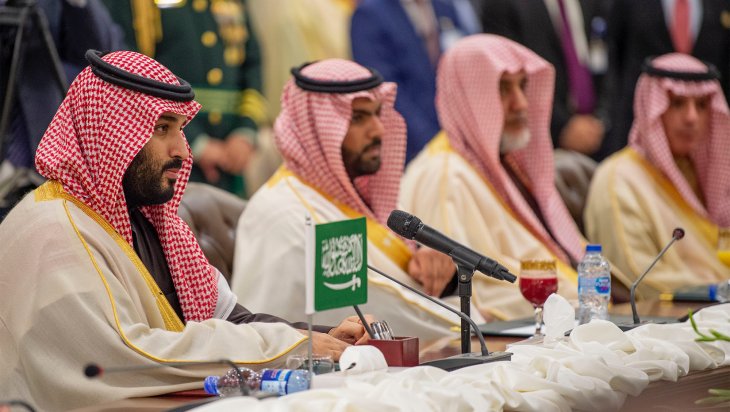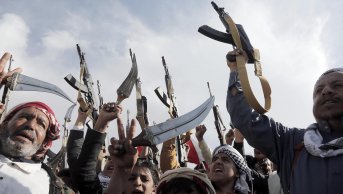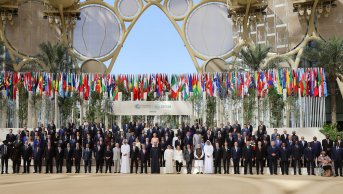Recent Cabinet Reshuffles Demonstrate A Saudi Anxiety

The government of Saudi Arabia has been experiencing major cabinet reshuffles, at least from the implications of the murder of Jamal Khashoggi which began to damage the Kingdom’s image, both inside and outside. The latest of the reshuffling efforts appeared on Wednesday, October 23rd, with a big blow to an already internationally contentious institution: the Saudi Foreign Ministry. A foreign minister serving 10 months, Ibrahim bin Abdulaziz al-Assaf, has been replaced with Prince Faisal bin Farhan al-Saud, helping to spread some new rumors about the royal anxiety and the incompetence of the Saudi government in handling its adventurist foreign policy.
Ibrahim bin Abdulaziz al-Assaf has been serving as the Saudi Foreign Minister since December 2018, having replaced the long-time diplomat Adel al-Jubeir over the latter’s assumed incompetence and lack of leadership skills in the handling of the murder of Jamal Khashoggi and of the following implications. Neither the dethroning of Adil al-Jubeir nor the removing of Ibrahim bin Abdulaziz Al-Assaf were expected decisions, and both shocked the international media. With King Salman’s removing of Ibrahim bin Abdulaziz al-Assaf from his position, the former foreign minister al-Assaf became the shortest-serving foreign minister in Saudi history with only 10 months of duration.
The new foreign minister is not someone who is unrecognized in the royal circles. Prince Faisal bin Farhan has previously led many businesses inside and outside of Saudi Arabia, allowing him to garnersomething of a reputation in business circles. Despite having a vast experience in business, Prince Faisal bin Farhan has also served in government circles before as a senior adviser to the Ambassador of Saudi Arabia to the US in D.C and to Mohammed bin Salman formerly. Also, Prince Faisal bin Farhan was believed to facilitate certain military initiatives between the US and Saudi Arabia, and he has served as the Saudi Ambassador to Germany since February 2019 onwards. Noting that he was born in Germany and has conducted many businesses and military initiatives with Western countries, there is no plausible reason that his appointment will not please Saudi Arabia’s Western partners.
The Declining role of Foreign Ministers
Here, one easily noticeable pattern is the duration in which the Saudi Foreign Ministers serve has been diminishing with each foreign minister. Faisal bin Abdulaziz Al-Saud, who was the first Foreign Minister of Saudi Arabia, served almost 30 years under two kings, Abdulaziz Ibn Saud and Saud bin Abdulaziz Al-Saud. Following him, Ibrahim bin Abdullah Al Suwaiyel served 2 years, Faisal bin Abdulaziz Al Saud 13 years, Saud bin Faisal Al Saud 30 years, and the two latest foreign ministers Adel al-Jubeir served 3 years, and Ibrahim Abdulaziz Al-Assaf served only 10 months.
In fact, the cabinet reshuffles are not limited to Foreign Ministry. From December 2018, Foreign Minister, Media Minister, Education Minister, Head of the National Guard, Head of the General Entertainment Authority, have been replaced. A more recent government shake-up came in on August, changing Energy Minister, Aramco CEO, Head of the Royal Court, each brought about its own implications. Also, with modern-day foreign ministers, the duration through which they serve seems to be plummeting. That shows the Saudi anxiety over whom to trust and over whom to appoint to top governmental positions.
Possible scenarios
There could be different scenarios for the King Salman’s decision to remove Al-Assaf. One scenario is that either overtly or covertly, the Saudi government might be willing to rebrand its foreign policy course or its image at the very least to please its Western partners. Given that Prince Faisal bin Farhan has had a business and political career so close to Saudi Arabia’s Western partners, that argument seems straightforward. Caught between what it says the Iranian menacing behaviors are in the Gulf and on its soil, and a long-dragged and protracted military intervention in Yemen, Saudi Arabia may be eager for breaking the ice with Iran. The appointment of Prince Faisal bin Farhan, who is a royal and a close friend of Western countries, may be about rendering the already restrained decision making narrower than ever.
Of course, certain foreign policy developments have been a driving force for this appointment. The low profile that Al-Assaf has taken as soon as taking office led Adel al-Jubeir, who is Minister of State for Foreign Affairs, to set the tone for the Saudi foreign policy rhetoric. It remains unclear whether the appointment of Prince Faisal bin Farhan as the foreign minister would diminish the prestige of Adel al-Jubeir. But it is most likely that Saudi government intended to have a new voice in justifying and explaining Saudi foreign policy.
One of the certain foreign policy developments is the tensions in the Saudi-Iranian relations. Recently, a rapprochement between Saudi Arabia and Iran has been reported by Western and Arab media outlets many times, emphasizing the need for de-escalation of tensions and the need of both countries for dialogue, stability, and concessions. For this, a cabinet reshuffling may signal that Saudi Arabia may not want other parties and circles to be aware of what the royal family or the narrowest government circles are planning on Iran. That could explain why a royal family member has been appointed as the new foreign minister.
Another somewhat plausible scenario is that Saudi decision making could be getting narrower than ever. It is not a secret that there have been continuous spats between King Salman and his son, Crown Prince Mohammed bin Salman. Cornered by his reckless decisions, Mohammed bin Salman is incessantly trying to gain ground in the Saudi government and does not refrain from using everything he has while he is “the second-highest person in the Saudi government” in his own words. In an attempt to gain ground and prepare for the throne, it has been rumored that the recent killing of the long-serving personal bodyguard of King Salman, Abdulaziz bin el-Faghem, has been ordered by Mohammed bin Salman. Also, the fact that Prince Faisal bin Farhan served formerly as an advisor to Mohammed bin Salman could pave the way for arguments alleging that the crown prince is increasing his attempts to influence the government. That means it might be the same scenario in which Mohammed bin Salman has an intention to gain ground in the Saudi government.
However, there is no solid explanation that could render it a fact as of now. It is only a possibility that this decision might have been animated by influencers close to Mohammed bin Salman, allowing him to use his power directly over the Foreign Ministry and the government. However, it remains dubious whether the crown prince would need a “cabinet reshuffling” so as to exert its power inside and outside of Saudi Arabia.
On top of that, what these cabinet reshuffling instances have demonstrated clearly is that almost everyone in the royal family and the top government positions may be feeling somewhat insecure. That insecurity besetting the Saudi government circles is proceeding at least from Mohammed Bin Salman’s so-called corruption crackdowns in order to strengthen his position as the crown prince. What these recent developments imply strongly is that the adventurism and interventionism of Saudi foreign policy could cost the composure among the royal family and the Saudi government. As long as Saudi Arabia maintains conducting a foreign policy that is diametrically opposed both to the demands of its people and to the demands of the Arab peoples whom it supposedly wants to lead, it seems that it is doomed to learn to live with an anxiety and insecurity emanating from its actions.








